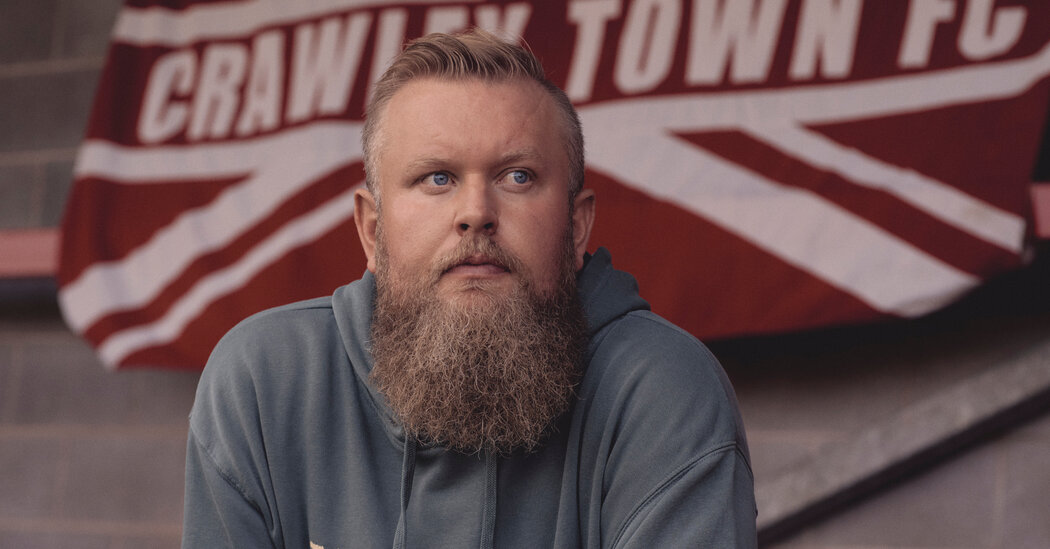The investment in Crawley is also an act of reputation cleaning. The great crypto crash of 2022 was partly a failure of ambition, as companies that had overextended themselves, convinced that the good times would continue, suddenly lost everything. Crawley’s new owners crave respect. They want to show that the nouveau-riche blockchain elite can be good stewards of a community institution. But like the rest of the industry, they have seen their extravagant ambitions clash with reality.
At the start of Crawley’s season, American crypto enthusiasts gathered at early morning screenings in New York and California to watch the team’s matches. The events turned out to be unlikely networking opportunities for people working in web3, the collective term for a newfangled internet built on crypto technology. But Crawley’s losing streak dampened some of the enthusiasm. Local fans started complaining, and seriously tweets of crypto investors (“Be very nice to someone today,” someone insisted) were greeted with: angry answers to fire the manager.
An unlikely takeover
The grand scheme of turning a small English football team into a symbol of crypto’s global influence began thousands of miles from Crawley, in the Malibu, California, branch of Nobu. Last fall, Mr. Johnson attended a dinner at the beachfront restaurant, where a group of NFT enthusiasts had gathered to bask in their newfound wealth. He was right at home: A former betting analyst for ESPN, Mr. Johnson, had made a fortune in crypto, with NFT holdings totaling a whopping $18 million when the market peaked last year.
During dinner, he was approached by Eben Smith, a fellow crypto entrepreneur, who soon pitched him on a collaboration: a sports team for the crypto community.
Over the next few months, Mr. Johnson and Mr. Smith brought together a group of approximately 35 crypto proponents, including Gary Vaynerchuk, the NFT entrepreneur, and Daryl Morey, a blockchain enthusiast who is also president of basketball operations with the Philadelphia 76ers. They established a business entity, WAGMI United. Pronounced “wag me,” the name stands for “We’re all gonna make it,” a popular rallying cry in crypto circles.
The group’s first takeover target was Bradford City, a club in the fourth division of English football with a rich history and a large following. “If we want to reach the highest level in America, you need billions of dollars,” said Mr. Johnson. “This was the cheapest price for us.” But the deal collapsed after Mr. Johnson and Mr. Smith gave interviews to The Washington Post and announced their intentions. Fans protested and the owner of the club refused to sell.
So the crypto investors decided for a backup option. Crawley, a major industrial town near Gatwick Airport, is not an athletic powerhouse; in an interview, a member of the WAGMI project described the area as “the Newark, New Jersey, England kind.” But the local club was available at a relatively affordable price of between £4 and 5 million – about a third of what WAGMI had raised.

